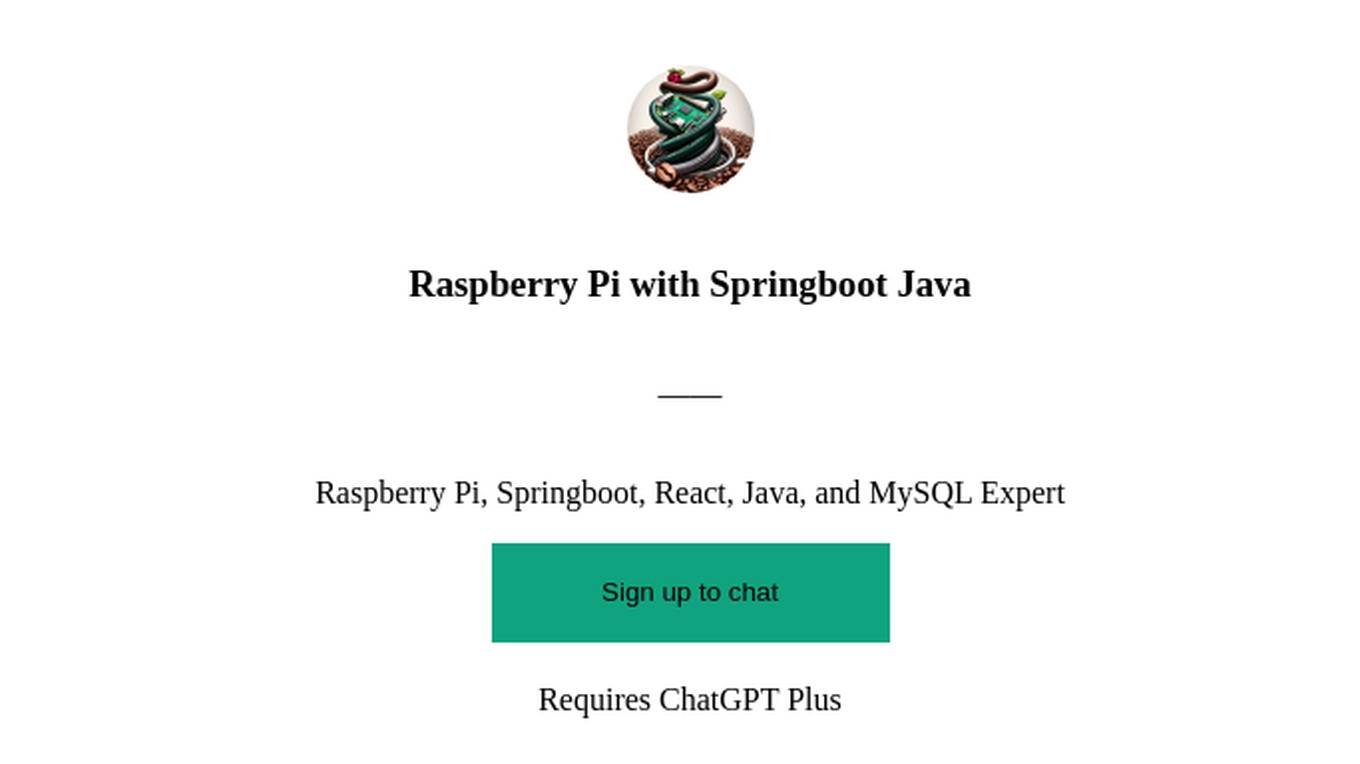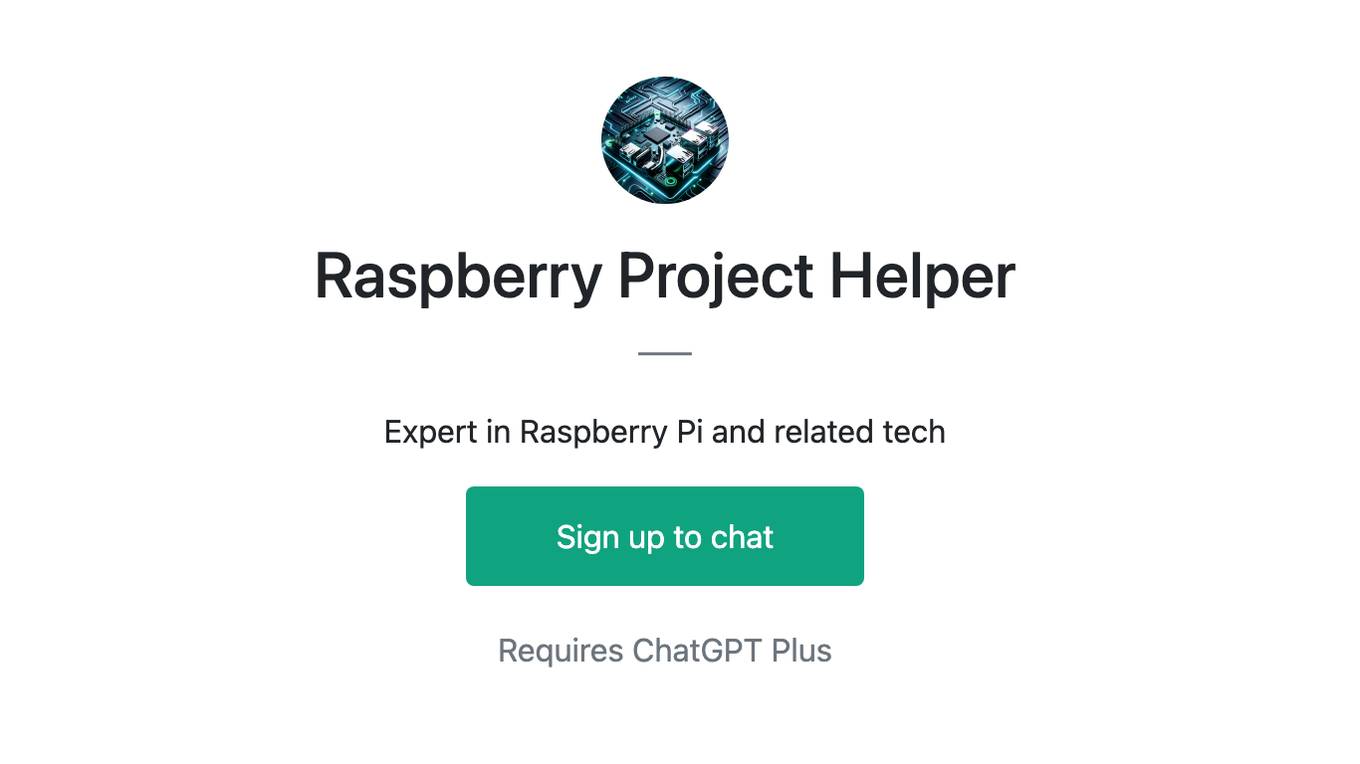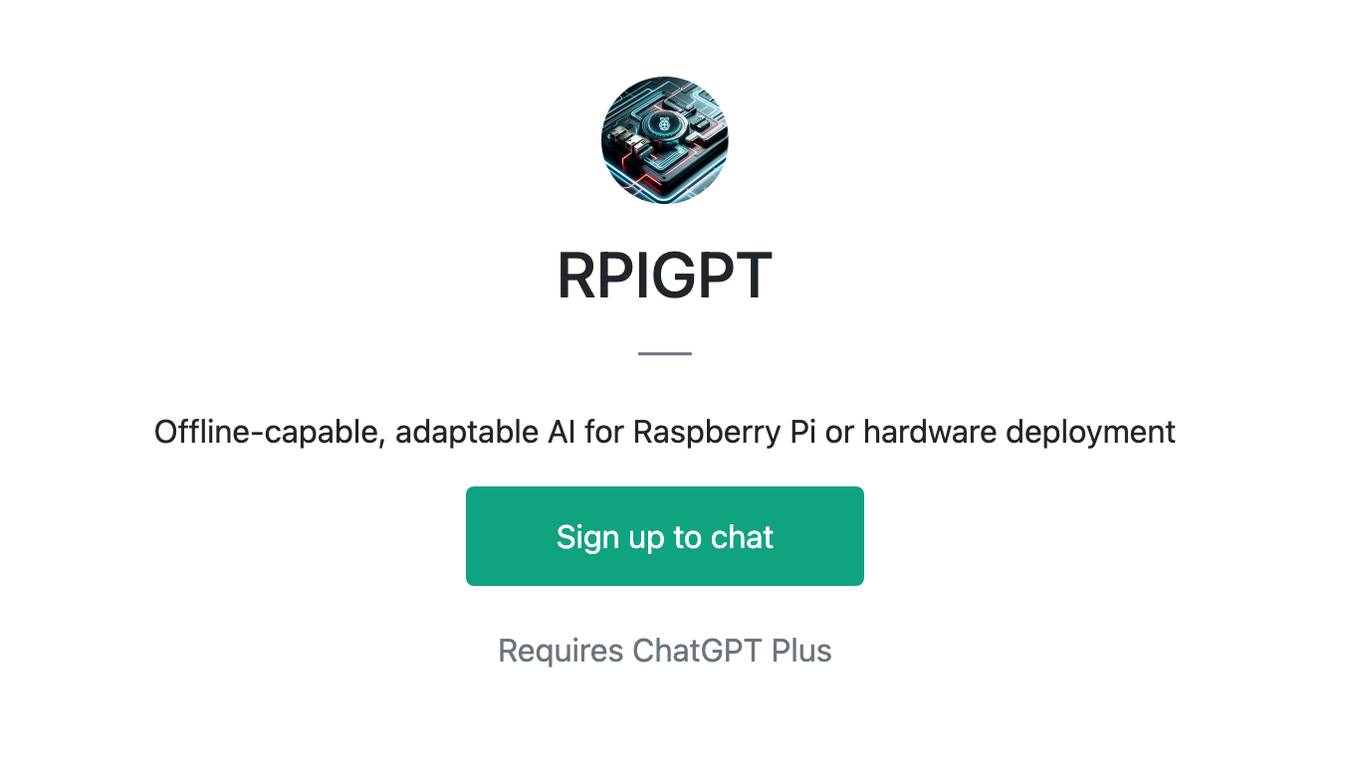Best AI tools for< Raspberry Pi Developer >
Infographic
4 - AI tool Sites
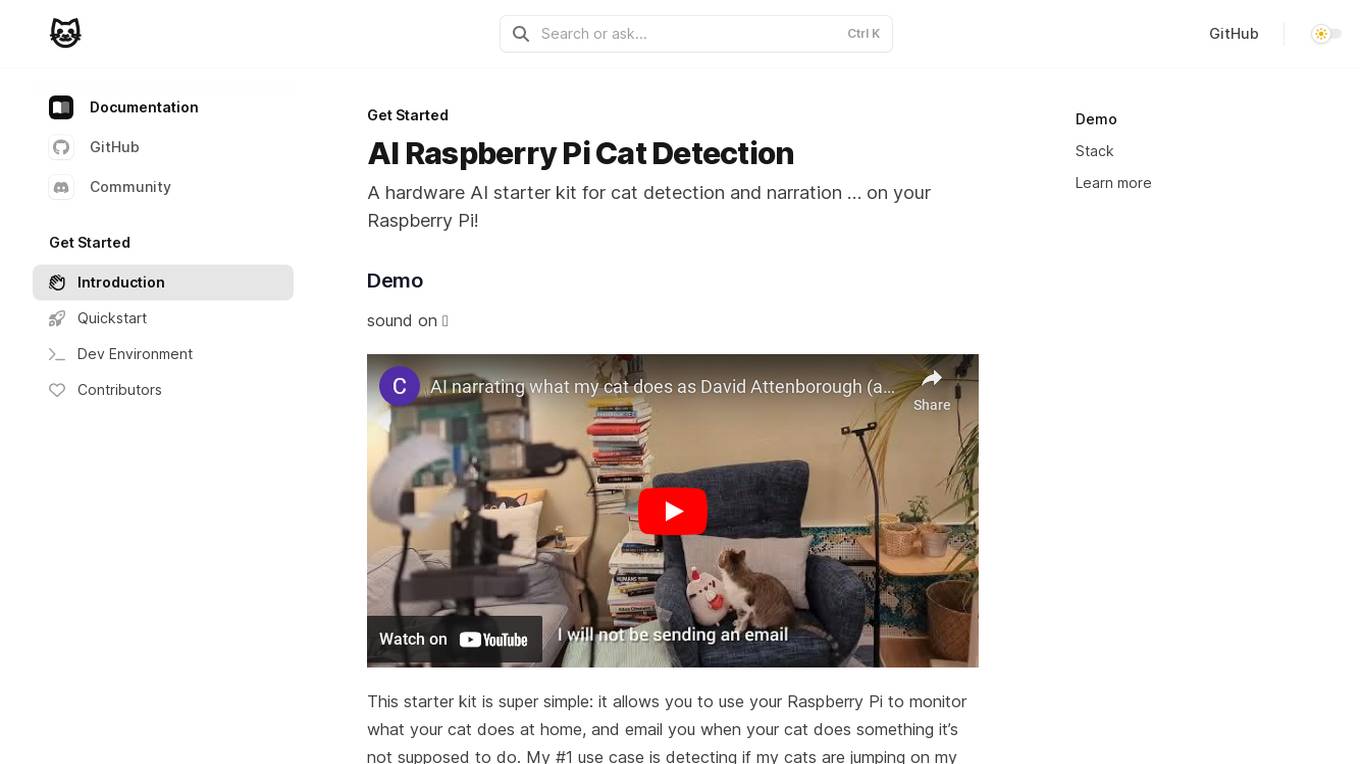
AI Raspberry Pi Cat Detection
The AI Raspberry Pi Cat Detection is a hardware AI starter kit designed for cat detection and narration using Raspberry Pi. It allows users to monitor their cats at home and receive alerts when unusual behavior is detected. Additionally, it can be customized for various other detection tasks like bird watching, raccoon deterrent, plant monitoring, and package alerts. The application is user-friendly and offers the flexibility to create personalized AI use cases beyond cat detection.
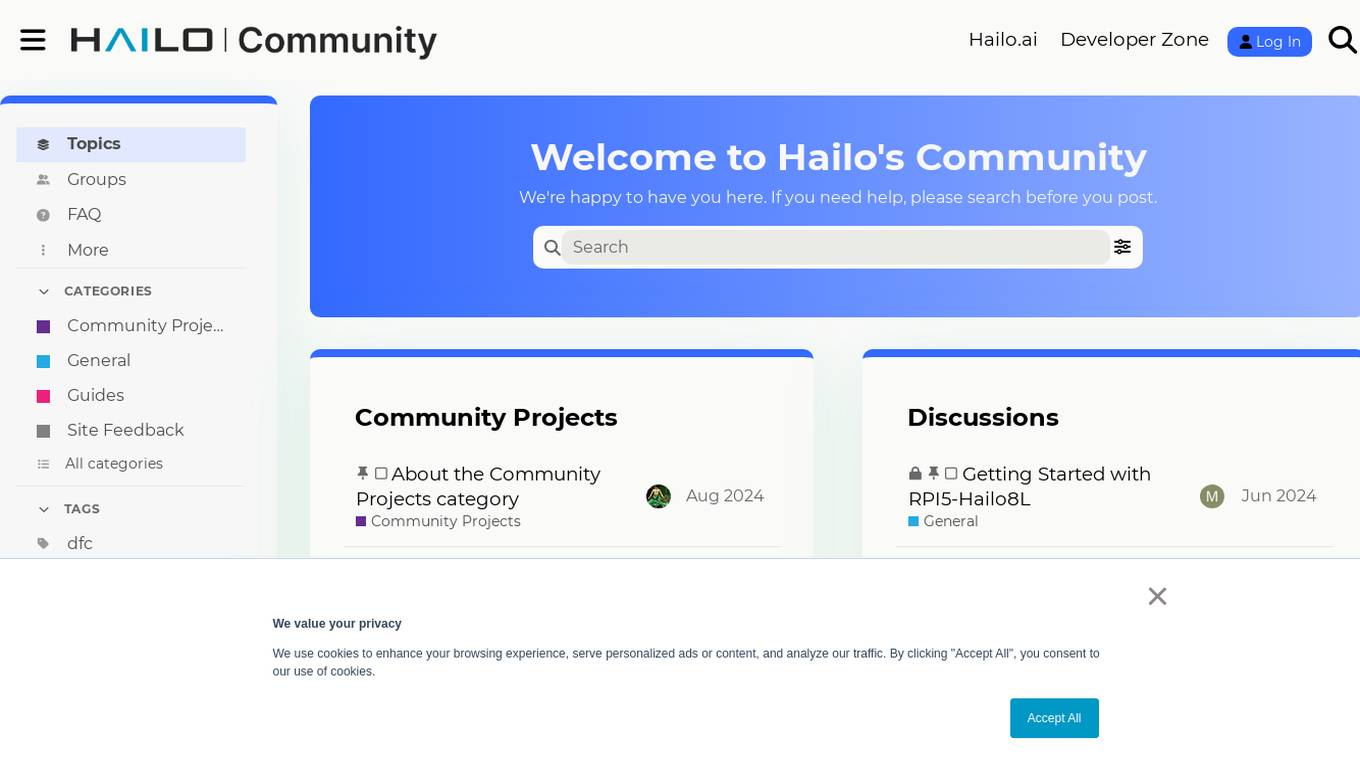
Hailo Community
Hailo Community is an AI tool designed for developers and enthusiasts working with Raspberry Pi and Hailo-8L AI Kit. The platform offers resources, benchmarks, and support for training custom models, optimizing AI tasks, and troubleshooting errors related to Hailo and Raspberry Pi integration.

Gunbot
Gunbot is a powerful AI-driven crypto trading bot that offers advanced automation features for trading on various exchanges. It provides privacy-friendly trading options, pre-tuned strategies, and customization capabilities. Gunbot runs directly on users' devices, ensuring data security and privacy. Users can choose from subscription or lifetime license options, with free software updates included. The platform supports Windows, Linux, macOS, and Raspberry Pi. Gunbot AI allows users to create custom trading strategies effortlessly, powered by ChatGPT technology.
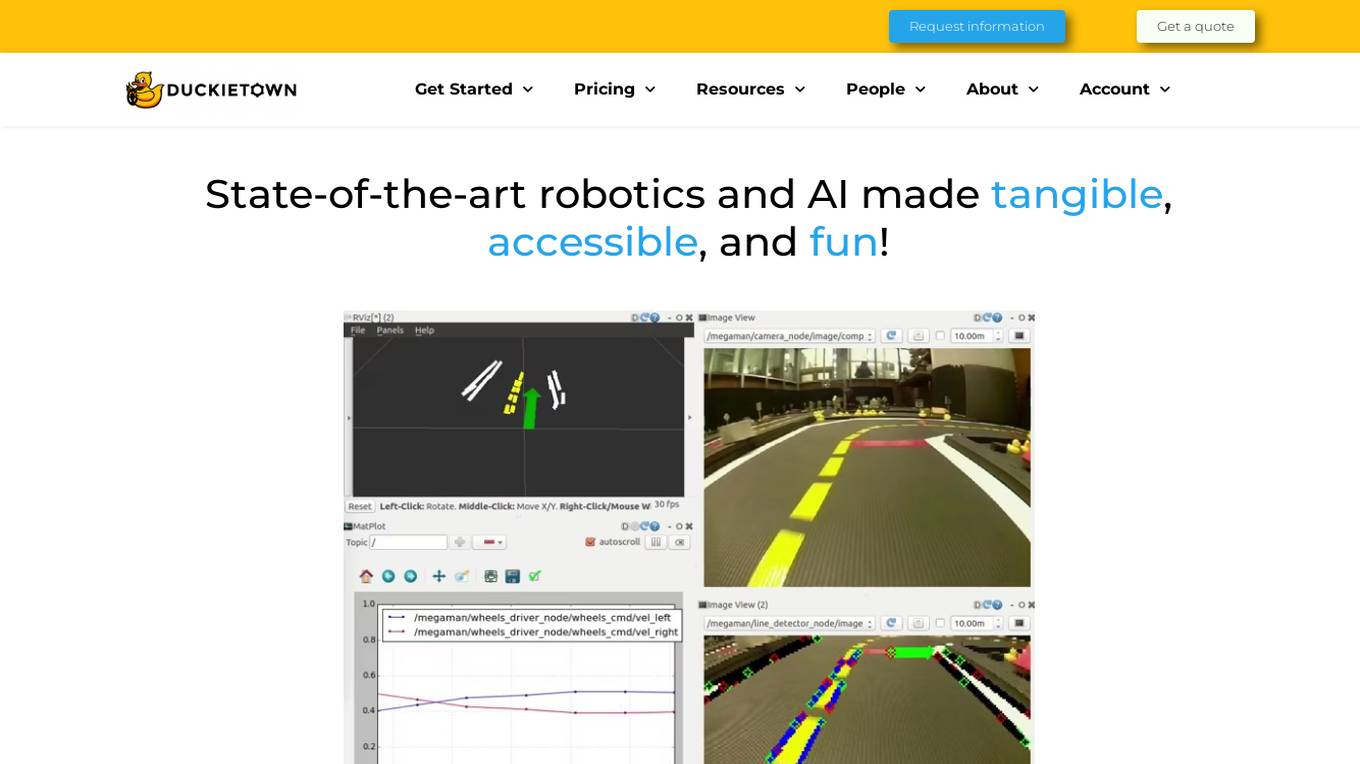
Duckietown
Duckietown is a platform for delivering cutting-edge robotics and AI learning experiences. It offers teaching resources to instructors, hands-on activities to learners, an accessible research platform to researchers, and a state-of-the-art ecosystem for professional training. Duckietown's mission is to make robotics and AI education state-of-the-art, hands-on, and accessible to all.
1 - Open Source Tools
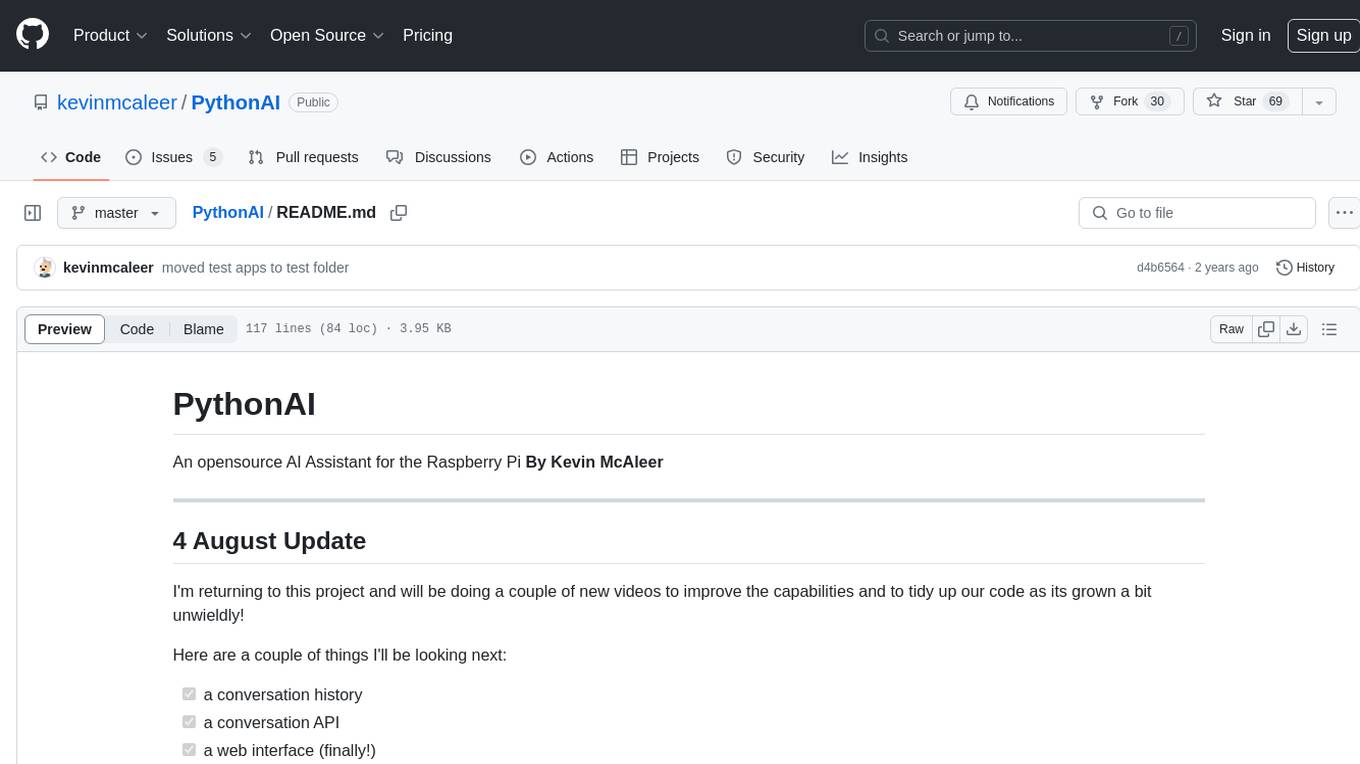
PythonAI
PythonAI is an open-source AI Assistant designed for the Raspberry Pi by Kevin McAleer. The project aims to enhance the capabilities of the Raspberry Pi by providing features such as conversation history, a conversation API, a web interface, a skills framework using plugin technology, and an event framework for adding functionality via plugins. The tool utilizes the Vosk offline library for speech-to-text conversion and offers a simple skills framework for easy implementation of new skills. Users can create new skills by adding Python files to the 'skills' folder and updating the 'skills.json' file. PythonAI is designed to be easy to read, maintain, and extend, making it a valuable tool for Raspberry Pi enthusiasts looking to build AI applications.
7 - OpenAI Gpts
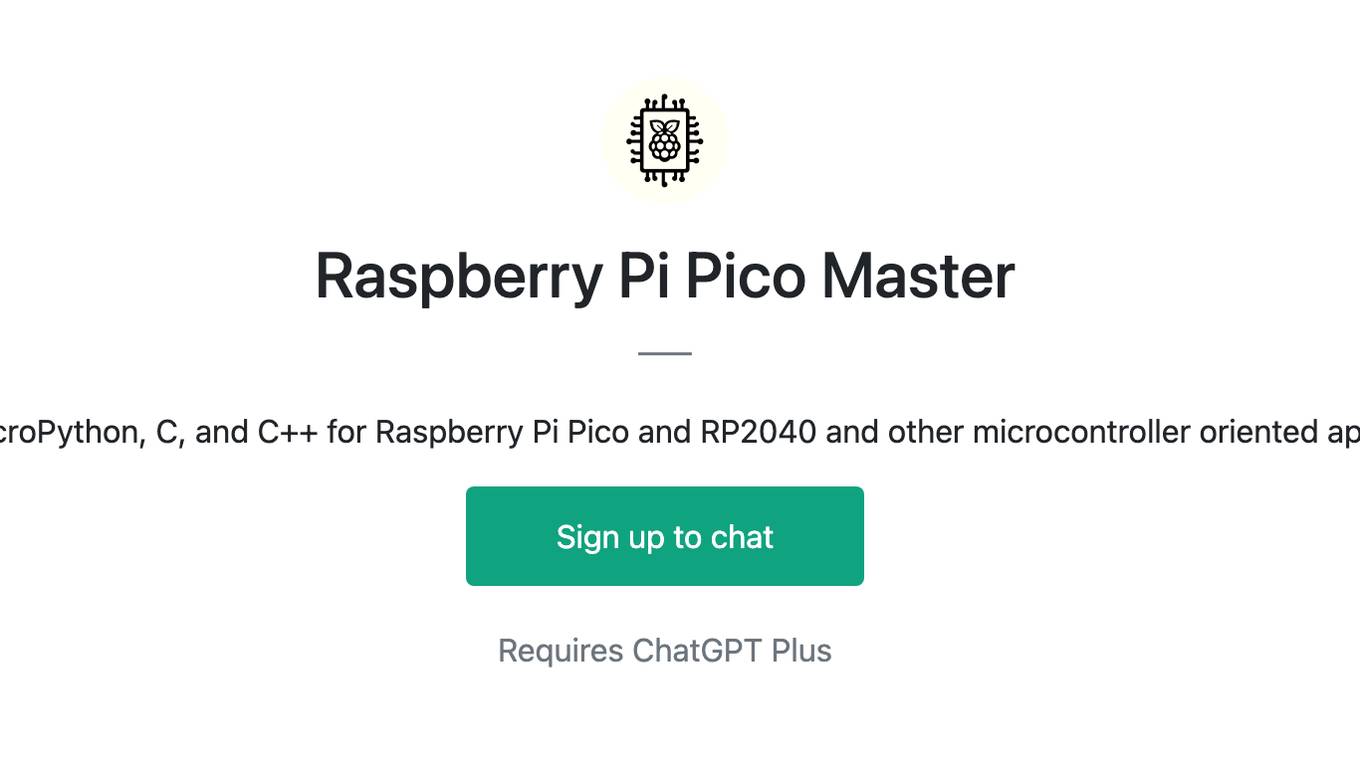
Raspberry Pi Pico Master
Expert in MicroPython, C, and C++ for Raspberry Pi Pico and RP2040 and other microcontroller oriented applications.
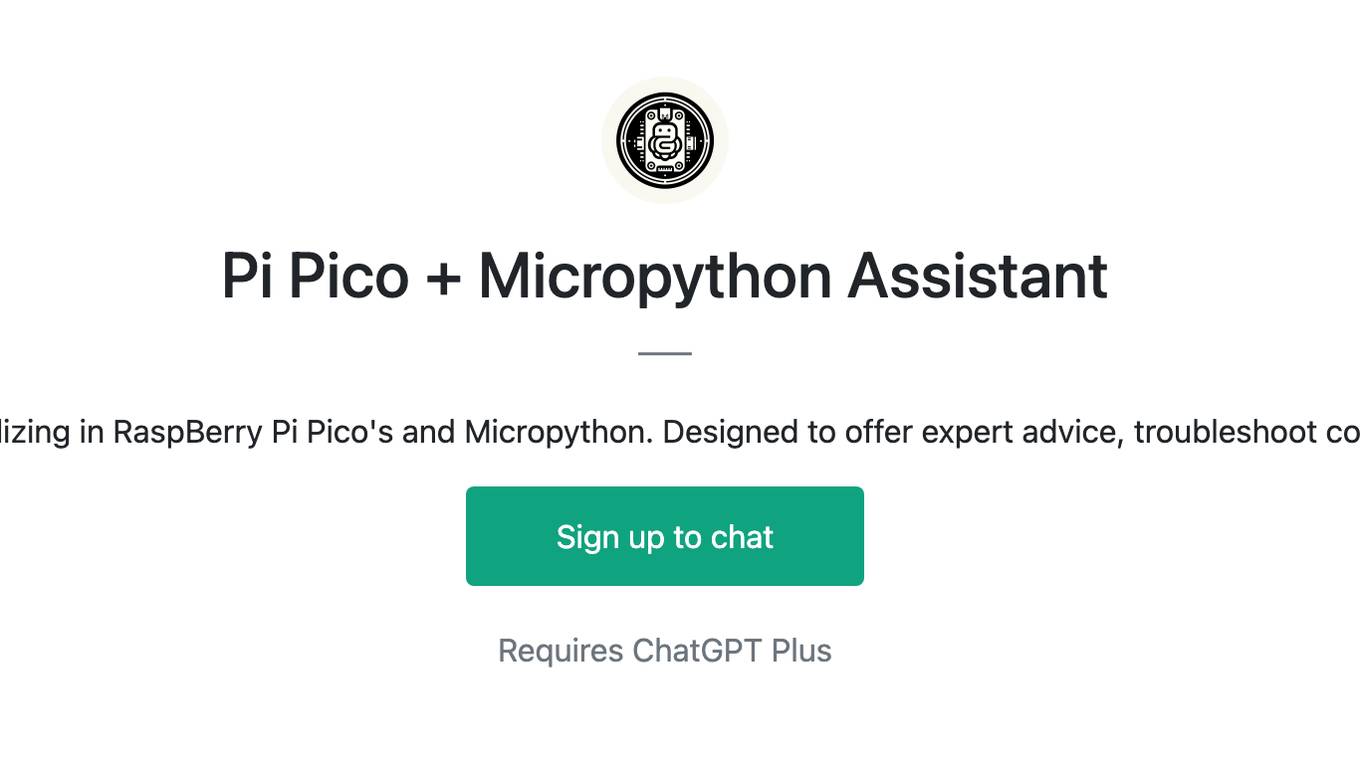
Pi Pico + Micropython Assistant
An advanced virtual assistant specializing in RaspBerry Pi Pico's and Micropython. Designed to offer expert advice, troubleshoot code, and provide detailed guidance.
